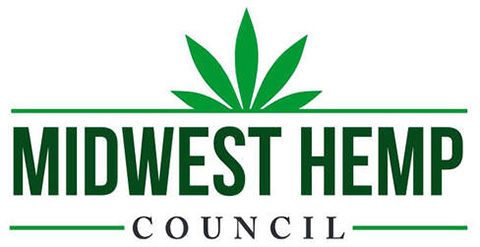
Congress is expected to soon begin its preliminary drafts of the 2023 Farm Bill. Stakeholders are watching closely to see how the new Farm Bill will impact hemp businesses, while also engaging with lawmakers to ensure that the multifaceted industry’s needs are addressed. In this article, we explore priorities and expectations of hemp industry stakeholders and provide insight into the ley policy changes for which they’re advocating.
The Farm Bill is reauthorized every five years, with the current version scheduled to expire at the end of September. Senate Majority Leader Mitch McConnell said he expects work on the 2023 version to continue well past the September 30 deadline. Industry observers note, however, that any delays should not cause major disruptions for the hemp sector in particular or farming in general.
“Even if the Farm Bill is not executed within 2023, there’s often slippage into the next calendar year,” Michelle Bodian, partner at Denver-based Vicente LLP and co-chair of the law firm’s hemp and cannabinoids department, told Hemp Benchmarks. “There are continuing appropriations to make sure that benefits are still there, the priority programs. If we don’t have a new Farm Bill, that’s okay, it’s happened before.”
Hemp Industry Priorities for the Farm Bill
Whenever it takes place, hemp industry advocacy groups are optimistic that the new Farm Bill will bring with it a number of positive changes. Jonathan Miller, General Counsel for the U.S. Hemp Roundtable (USHRT), noted in an email to Hemp Benchmarks that his organization recently outlined nine “essential policy priorities” for the upcoming Farm Bill, which were endorsed by 30 other national, regional, and state-based organizations.
The priorities include:
- Bolstering the U.S. Department of Agriculture (USDA) hemp program through funding and dedicated staff;
- Requiring the Food and Drug Administration (FDA) to regulate hemp extracts such as CBD;
- Designating hemp as a specialty crop;
- Repealing a ban that keeps felons from participating in hemp production;
- Promoting hemp research at historically Black colleges and universities, tribal colleges, and Hispanic-serving institutions;
- Removing Drug Enforcement Administration registration for hemp-testing labs;
- Easing burdensome regulations;
- Permitting hemp grain for animal feed;
- Addressing THC levels for hemp.
“If the Farm Bill accomplishes the regulatory-related issues addressed in the industry priorities we’ve outlined,” Miller added, “we anticipate seeing hemp product prices stabilize along with steadying or increasing prices for hemp biomass and raw hemp extracts.”
Changing Hemp’s THC Limits, Testing Lab Rules Seen as Realistic Goals
One of the issues many hemp stakeholders hope the new Farm Bill will address is raising the legal limit for THC in hemp. “We are advocating for an increase in the THC threshold for in-field hemp crops from 0.3% to 1%,” said USHRT’s Miller.
“I think [raising the THC limit] could happen if it’s applied in certain circumstances,” noted Vicente’s Bodian. She added that she believes it’s realistic that hemp’s THC limit could be raised on the cultivation side, which would be helpful to farmers in that they would not have to destroy crops that unexpectedly go “hot” by a small margin. However, “For a finished product standard, I don’t see that happening.”
While removing hemp and its derivatives – apart from THC – from the list of illegal controlled substances, the 2018 Farm Bill also set rules for hemp testing laboratories. Those rules included the requirement that laboratories testing hemp for THC be registered with the U.S. Drug Enforcement Administration (DEA).
Bodian hopes that the testing requirements will be changed in the new Farm Bill. She also pointed out that the rule’s implementation has been delayed without apparent issue, providing evidence that the requirement was unnecessary in the first place. “Given the delayed enforcement on DEA registration of testing laboratories, we now have five years of proof of concept that labs not registered with the DEA can successfully and safely test this product, and destroy anything above that 0.3% [THC] limit without any repercussions.”
Delta-8 THC’s Legal Status and the 2023 Farm Bill
Hemp stakeholders are also wondering if the upcoming Farm Bill will address the issue of delta-8 THC and other hemp-derived intoxicants. “As a matter of good public policy, I think this is a must,” Whitt Steineker, an Alabama-based partner at the Bradley law firm and co-chair of the firm’s cannabis industry team, told Hemp Benchmarks. “I know there are delta-8 operators who are comfortable operating in a legal gray area and who would prefer the devil they know (even if that is illusory because the status quo is uncertain) to the possibility the federal government will shut down the delta-8 industry.”
However, Steineker thinks that particular view is short-sighted, as continued uncertainty will hamper the industry. “If the federal government intends to prohibit the products, it should do so clearly,” he said. “Otherwise, it is crippling investments and research and development on the products because many are unwilling to put their money behind a product that could be deemed illegal at any time. With so much money at stake and so much uncertainty about the legal status of delta-8, delta-10, and other cannabinoids, Congress [owes] it to industry and consumers to provide clarity on the legal status of delta-8, delta-10, and other novel cannabinoids.”
According to Bodian, “all eyes” in the hemp sector are going to be focused upon how the 2023 Farm Bill ends up defining hemp. “Is hemp going to be defined as limited to the plant in the ground?” she asked. “Is it going to be defined differently for any sort of extracts or derivatives? Is it hemp if it’s made through isomerization? I could see an impact depending on where we all land, but to me the impact would come from the definition of hemp itself.”
Miller at USHRT said his organization would like the 2023 Farm Bill “to tackle or take a sensible step toward regulating all hemp-derived cannabinoids, including those such as delta-8 THC marketed as intoxicating. We oppose their criminalization.”
Farm Bill “Has the Bandwidth” to Change America’s Hemp Regulatory Landscape
Michelle Bodian at Vicente believes the new Farm Bill will ultimately change hemp’s regulatory landscape in the U.S., including potential changes that would separate hemp fiber and grain from cannabinoid hemp. She expanded further, “I do expect … some touching on funding opportunities and mechanisms, insurance, conservation programs. So I’m hopeful to see hemp eligibility being opened up from some of the other USDA-run programs.”
Jonathan Miller at USHRT said the new Farm Bill “has the bandwidth” to address the outstanding issues impacting the hemp industry. “Specifically, we would like to see provisions that provide relief to hemp farmers by easing the regulatory burdens on production,” he continued, “and protect consumers and retailers by establishing a federal regulatory pathway for products containing CBD and other hemp-derived cannabinoids.”
Related Articles:
- Is Hemp Any Closer to Being Approved as Animal Feed? A 2023 Update (July 19, 2023)
- The View from the Top: Officials in Major Hemp Producing States Provide Perspective on the Industry (May 17, 2023)
- FDA’s CBD Announcement Rankles Industry, Leaves Hemp Cannabinoid Sector in Limbo (February 1, 2023)
- Will the U.S. Hemp Industry Rebound in 2023? (January 4, 2023)


